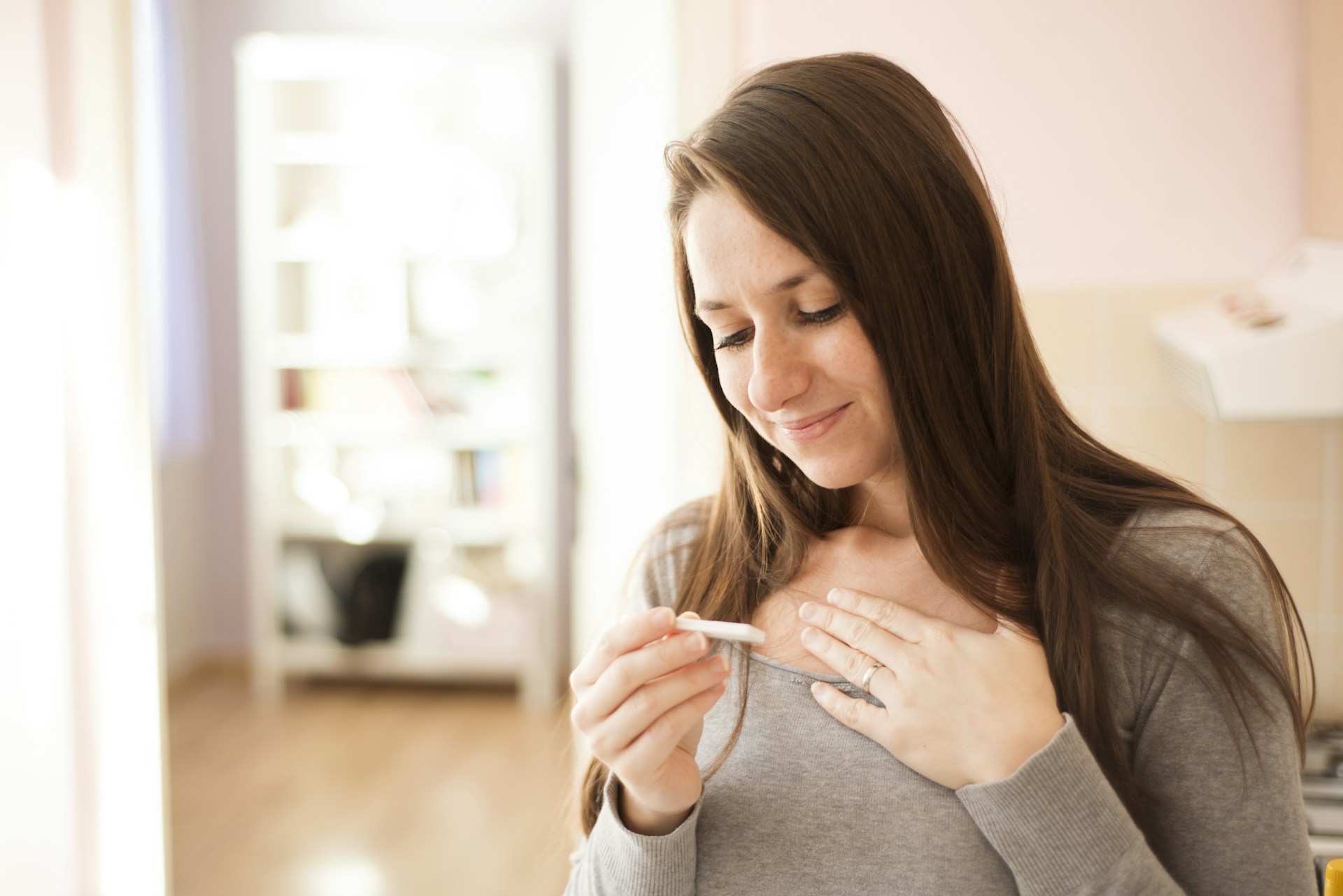When researching PCOS to help improve her own for infertility, dietitian Liz Bissell realized there were not enough resources for women looking to improve their nutrition when navigating PCOS and infertility.

When researching PCOS to help improve her own for infertility, dietitian Liz Bissell realized there were not enough resources for women looking to improve their nutrition when navigating PCOS and infertility.
After college, I moved to the Chicago area to complete my dietetic internship and Master’s degree at Benedictine University. After graduation, I moved to Houston, Texas where I started my career as a dietitian at an acute rehabilitation hospital.
A year and a half passed. I realized I missed the seasons and wanted to be closer to home so I moved back to West Michigan to start a clinical dietitian position at a large acute care hospital.
At this hospital, I gained the experience I was hungry for!
I worked in just about every area under the sun from the neuro intensive critical care unit to cardiothoracic surgery to outpatient bariatric counseling. I learned a great deal in this position and loved the fast-paced, ever-changing nature of the acute care setting.
Within a year, I started working at another acute care hospital closer to home and continued my learning as a clinical dietitian.
Looking for a change
Eventually I wanted a change, and more flexibility in my work schedule so I started working as a clinical specialist for a home infusion company.
Over the year I spent working for this company, I was experiencing a lot of changes personally. I got married and started “trying” to conceive. I shortly realized that it wasn’t as easy as I anticipated.
I knew that I had PCOS but had been on a hormonal birth control pill for years until right before I got married. Turns out, birth control pills really took a toll on my body and getting pregnant was not going as planned.
I struggled mentally wondering why my body was not doing what I wanted it to do.
To make a long story short, I quit my very stressful job, started doing serious research about PCOS and nutrition, and decided to start my own virtual private practice.
Recognizing the gaps in PCOS care
When I was doing research on PCOS to help improve my own for infertility, I realized there were not enough resources for women looking to improve their nutrition when navigating PCOS and infertility.
PCOS patients face so many challenges, mostly because there is still a lot of misinformation about PCOS, even among physicians. This makes diagnosis, quality care, and getting the resources we need very difficult.
Not to mention, we aren’t given adequate education about hormone cycles in school. There is so much research still needed in the PCOS realm to help us better understand the cause of this complex condition.
We are just beginning to uncover all the ways PCOS affects women’s bodies hormonally, physically, mentally, and genetically.
Cycle tracking and PCOS
It can be harder for individuals with PCOS to track their cycles because most women with PCOS struggle to have regular cycles. With PCOS, follicles in the ovaries cannot mature fully which means that often there is no release of an egg.
As a result of absent or infrequent ovulation, women with PCOS don’t produce enough progesterone, a hormone produced only after ovulation by the corpus luteum.
Estrogen then becomes the dominant hormone leading to a whole host of other issues, such as headaches, irregular and heavy periods, bloating, weight gain, decreased sex drive, PMS, mood swings, and anxiety.
When there’s lack of ovulation and longer cycles, it can be difficult to pinpoint when women with PCOS are actually ovulating.Women with PCOS often also have an altered LH to FSH
ratio, two hormones that assist in telling the ovary when to release the egg for ovulation.
The most common way to track ovulation is using ovulation predictor kits (OPKs), which detect an LH surge. Women with PCOS often have abnormally elevated levels of luteinizing hormone (LH). Because of the abnormally elevated LH levels, women with PCOS often get false positives if they are only using OPKs to track ovulation.
Finding support
Navigating PCOS can be challenging.
Working one-on-one with PCOS clients and in the women’s health space really served as my own personal therapy.
I loved seeing women benefit from the information they really needed and couldn’t find before. As my PCOS became better managed and my mental health improved (largely thanks to a less stressful work environment), I became pregnant shortly after starting my own practice.
I’ve been working in the PCOS and infertility space ever since!
In my time as a patient and a provider, I’ve found it’s important to surround yourself with support. Support can be found in your partner, a friend, a family member, or a professional like a dietitian, therapist, or reliable doctor that you trust.
I find that support helps lighten the emotional burden of infertility and/or PCOS with clients and with my own personal PCOS and infertility struggles.
Remember not to be ashamed. PCOS is not your fault.
About the author

Sources
About the Oova Blog:
Our content is developed with a commitment to high editorial standards and reliability. We prioritize referencing reputable sources and sharing where our insights come from. The Oova Blog is intended for informational purposes only and is never a substitute for professional medical advice. Always consult a healthcare provider before making any health decisions.



